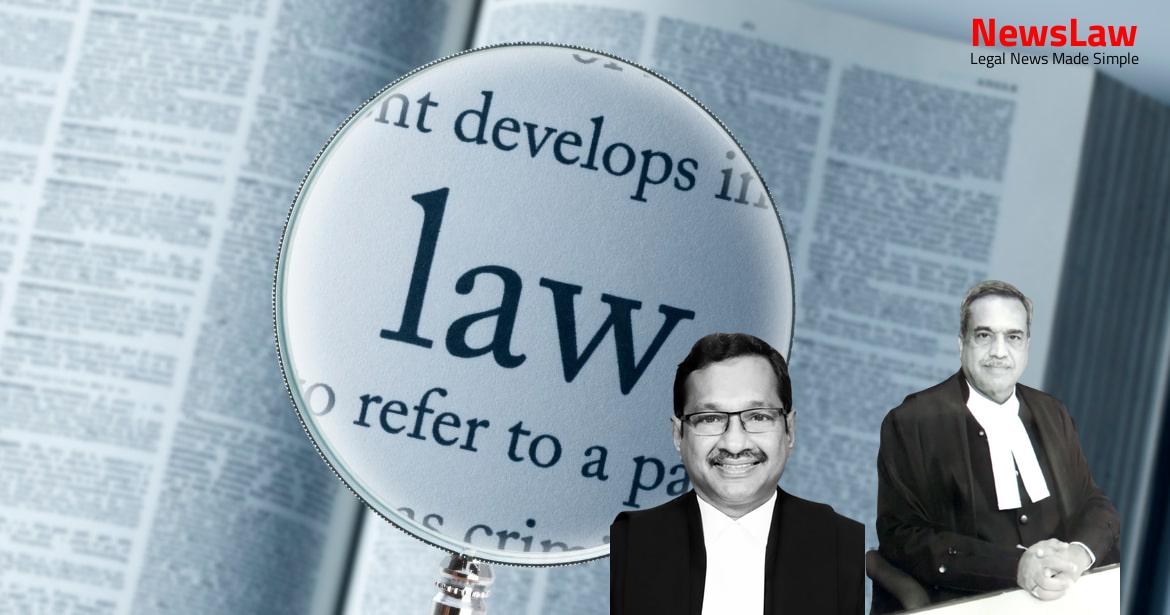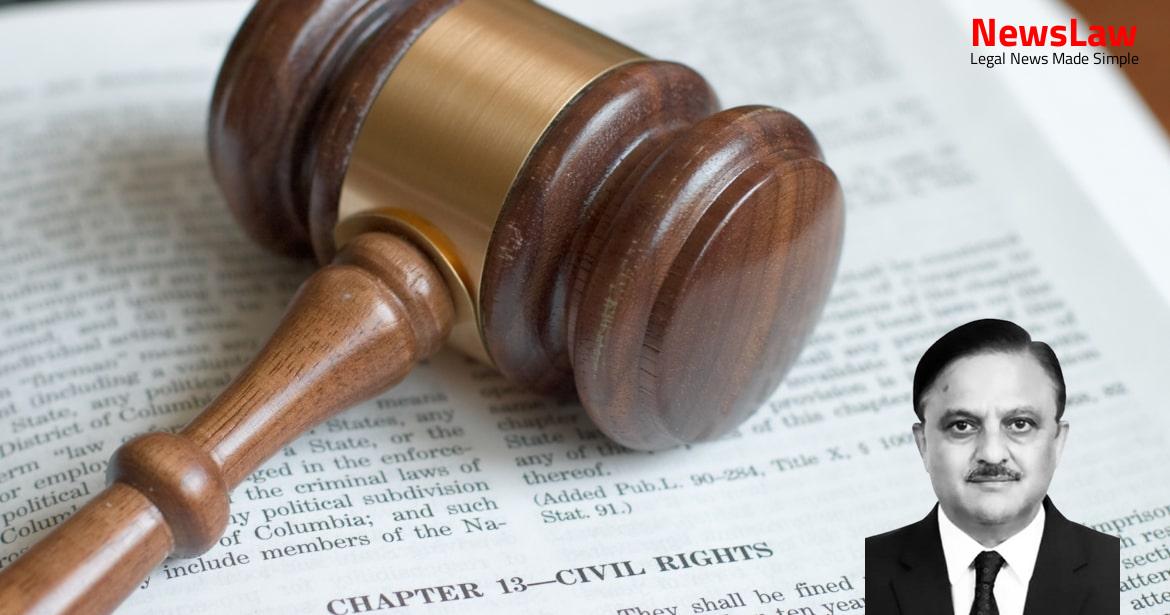The court’s legal analysis in a recent case regarding dental admissions delves into the intricate balance between discretion and relevant considerations. By examining the nuances of the decision-making process, the court highlights the need for a meticulous approach in exercising discretion. Stay tuned to explore how the court scrutinizes the legality and rationality of decisions in this intriguing legal case.
Facts
- The Petitioners in Writ Petition No. 54 of 2021 did not obtain the minimum marks prescribed by the Dental Council of India for admission to BDS course.
- The Petitioners filed the Writ Petitions under Article 32 of the Constitution of India as they had no other alternative.
- The Petitioners submitted a representation to the Respondent No.1 seeking to lower the qualifying cut off percentile based on the recommendation of the Executive Committee of Respondent No.2.
- The recommendation of the Executive Committee was not accepted by the first Respondent.
Also Read: Legal Analysis on Seniority Fixation in Contempt Petitions
Issue
- Whether the exercise of discretion by the first Respondent is for the purpose specified in the Regulations
- Determining if irrelevant considerations have been taken into account in making the decision
- Assessing if the decision is rational or not
Also Read: Vertical Mobility and Selection Process in Police Department
Arguments
- Petitioners argue that lowering the minimum marks for admission to BDS course does not lower the standards of education.
- The Central Government has the discretion to lower the minimum marks in consultation with the Dental Council of India when candidates fail to secure minimum marks in the NEET entrance test.
- Despite recommendations to lower the qualifying cut off percentile, the first Respondent has not acted upon them for the year 2020-2021.
- Petitioners seek a direction to lower the minimum marks for NEET examination, 2020 for admission to BDS course by 20 percentile based on the recommendation of Respondent No.2.
- There is a shortage of students for BDS course admissions leading to vacant seats, highlighting potential national waste.
- Arguments made against lowering percentiles impacting education standards and private colleges charging high fees resulting in unfilled BDS seats are disputed.
- The first Respondent decided against lowering the minimum marks for BDS course admission in the year 2020-2021.
- The number of registered Dentists in India and the eligibility criteria for BDS Course admission are emphasized.
Also Read: Interpretation of Section 80-IA Deductions
Analysis
- The decision maker must focus on pertinent and proximate matters, avoiding irrelevant and remote considerations.
- The ratio of available seats to eligible students for BDS is 1:4.5, not 1:7 as claimed by the Central Government.
- Factors such as lack of interest in BDS due to high fees and preference for MBBS by students influenced the decision not to lower minimum marks.
- The Central Government’s argument of sufficient dentists in the country does not justify leaving seats unfilled.
- The fee charged by private dental colleges was identified as a deterrent for filling up seats.
- Ignoring vital facts related to NEET conducting exams for multiple medical courses and the seats available for different courses was deemed as a flaw in the decision-making process.
- Reliance was placed on an order passed by the Court in Union of India v. Federation of Self-Financed Ayurvedic Colleges, Punjab, (2020) SCC 115.
- Non-availability of eligible candidates for admission to AYUSH (UG) courses cannot be a reason to lower the standards prescribed by the Central Council for admission.
- Reference to R. vs. St. Pancras Vestry where it was held that if individuals exercising public duty consider improper matters in their discretion, they have not exercised their discretion in the eyes of the law.
- The Dental Council of India recommended lowering the minimum marks for admission
- Regulations allow for lowering the minimum marks
- The first Respondent has already exercised discretion and lowered the minimum marks for the 2019-2020 admissions
- The decision of the first Respondent dated 30.12.2020 to not reduce the minimum marks is set aside as it is illegal and irrational
Decision
- Admissions to the BDS course shall be based on merit and completed by 18.02.2021
- Candidates who have qualified in NEET (UG) – 2020, even without lowering the minimum marks, may be considered for admission
- General candidates with benchmark disabilities under the Rights of Persons with Disabilities Act, 2016, eligible if they have secured 35 percentile
- Vacant seats in the first year BDS course for 2020-2021 shall be filled from NEET (UG) candidates with a lowering of percentile mark by 10 percentile
- General category candidates with 40 percentile are eligible for admission, while SC/ST/OBC candidates with 30 percentile are also qualified
Case Title: HARSHIT AGARWAL Vs. UNION OF INDIA (2021 INSC 69)
Case Number: W.P.(C) No.-000054 / 2021



